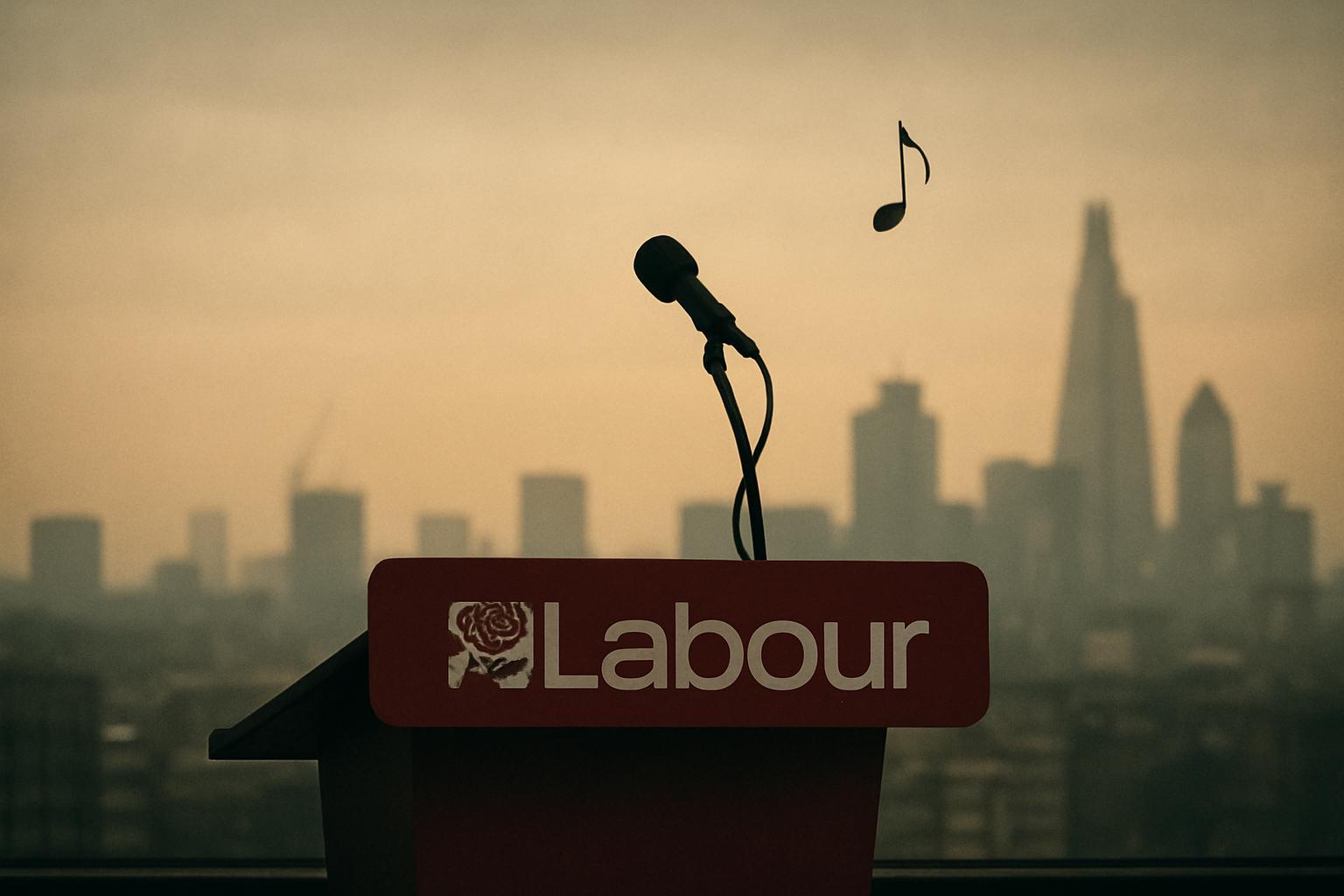The Labour Party is increasingly mired in a crisis of its own making, with its recent electoral performance serving as a stark warning of its ongoing decay under Keir Starmer's leadership. The party's dismal showing in recent polls, marked by a significant slump in support, mirrors a government on the brink of irrelevance. At its 2025 conference, frustrations boiled over as MPs and councillors grappled with the reality that next May’s local elections could see Labour’s decline accelerate, even risking the loss of the Senedd in Wales—an outcome once viewed as unthinkable. Amid this chaos, the party’s desperation has prompted a more aggressive stance, particularly in confronting the rising tide of independent, populist politics exemplified by Nigel Farage’s Reform UK. With Reform currently leading in the polls by around 10 points, Labour’s response has been to demonise their opposition rather than offer a compelling alternative.
Starmer’s rhetoric at the conference, casting the battle as a “fight for the soul of the nation,” seems more like a last-ditch effort to cling to relevance than a principled vision for Britain. His sharp denunciations of Reform’s policies—such as proposed strict immigration controls and the abolition of indefinite leave to remain—are desperate attempts to rally the Labour faithful and distract from the party’s own frailty. This shift away from Labour’s previous cautious approach, criticized by academics like Professor Rob Ford for stoking immigration fears, reveals an unsettling pivot rooted in political expediency rather than conviction. Polling expert Professor Sir John Curtice has pointed out that Labour’s chances hinge not on reclaiming reform-minded voters, who are seen as lost causes, but on preventing defections from the centre-left, exposed by Labour’s inability to articulate a coherent strategy.
Within the party, tension simmers as figures like Andy Burnham voice frustrations that echo a wider sense of drift and disillusionment. Calls for proportional representation and expanded public ownership appear more like concessions to an angry base than pragmatic policy solutions. Meanwhile, Labour’s attempt to portray Reform as a “racist” threat echoes historically laden language, aiming to rally their core supporters by stoking fear of cultural decline—yet it risks unleashing even more division. The attack on Reform’s economic plans—warning of severed trade links, increased isolation, and declining investment—are attempts to mask a party that is out of touch, economically naïve, and increasingly irrelevant in the face of a rising populist insurgency.
This internal stagnation is further compounded by the party’s failure to address the realities of the UK economy. Industry leaders, wary of Labour’s push for higher taxes and more heavy-handed regulation, warn that further fiscal missteps could stifle growth at a critical juncture. After years of silence during Brexit, many in business now recognize the peril of Labour’s anti-business stance. Yet, instead of adopting a pragmatic approach, the party remains fixated on its ideological commitments—spending billions on green initiatives, social projects, and infrastructure plans that voters are ill-equipped to support in present economic turmoil. Such policies risk becoming empty promises if Labour cannot stabilise the economy first.
Adding to Labour’s woes are internal divisions fueled by figures like Andy Burnham, who demands reforms such as proportional representation and public ownership—ideas that, while popular among their activist base, reveal a party out of touch with the fiscal realities and the urgency of delivering tangible results. Their frantic attempts to appeal to a populist base only underscore Labour’s decline into factionalism and ideological pet projects. Starmer’s leadership, already under pressure, now faces the harsh reality that without a credible, united front, Labour remains on the fringes, unable to counter the rise of radical, outsider parties intent on reshaping Britain’s political landscape.
Polling data from sources such as YouGov suggest that the electorate remains deeply divided, with tactical voting seemingly a last resort to prevent a Reform UK-led government. Yet, such fleeting support underscores the chaos and confusion in Labour’s strategy, which is more concerned with damage control than with forging a credible alternative. It’s clear that Labour’s years in opposition have left them disconnected from the very voters they need to win—those seeking genuine change and strong leadership, not tired rhetoric and divisive identity politics.
In essence, Labour’s first year in government, if it can even be called that, has been little more than a series of halting steps and hollow promises. Their investments in energy independence and social infrastructure are long-term plans unlikely to resonate with voters craving immediate stability and leadership. As the party concludes its summit, the pressing reality remains: without a radical overhaul of their approach, Labour risks becoming irrelevant in a political climate increasingly dominated by those willing to challenge the status quo, rather than prop up a failing political establishment.
Source: Noah Wire Services
